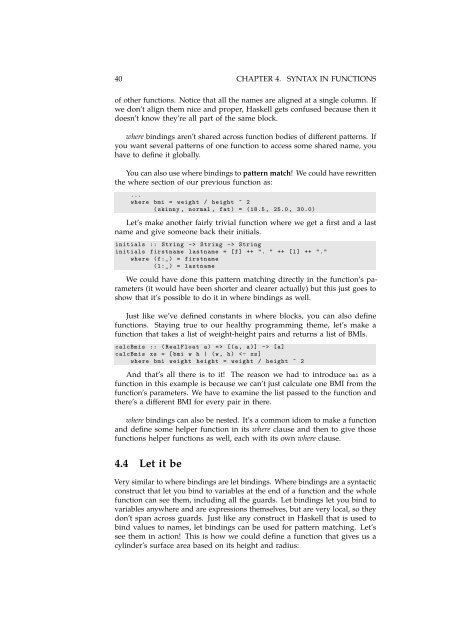Create successful ePaper yourself
Turn your PDF publications into a flip-book with our unique Google optimized e-Paper software.
40 CHAPTER 4. SYNTAX IN FUNCTIONS<br />
of other functions. Notice that all the names are aligned at a single column. If<br />
we don’t align them nice and proper, Haskell gets confused because then it<br />
doesn’t know they’re all part of the same block.<br />
where bindings aren’t shared across function bodies of different patterns. If<br />
you want several patterns of one function to access some shared name, you<br />
have to define it globally.<br />
You can also use where bindings to pattern match! We could have rewritten<br />
the where section of our previous function as:<br />
...<br />
where bmi = weight / height ^ 2<br />
( skinny , normal , fat ) = (18.5 , 25.0 , 30.0)<br />
Let’s make another fairly trivial function where we get a first and a last<br />
name and give someone back their initials.<br />
initials :: String -> String -> String<br />
initials firstname lastname = [f] ++ ". " ++ [l] ++ "."<br />
where (f:_) = firstname<br />
(l:_) = lastname<br />
We could have done this pattern matching directly in the function’s parameters<br />
(it would have been shorter and clearer actually) but this just goes to<br />
show that it’s possible to do it in where bindings as well.<br />
Just like we’ve defined constants in where blocks, you can also define<br />
functions. Staying true to our healthy programming theme, let’s make a<br />
function that takes a list of weight-height pairs and returns a list of BMIs.<br />
calcBmis :: ( RealFloat a) => [(a, a)] -> [a]<br />
calcBmis xs = [ bmi w h | (w, h)



